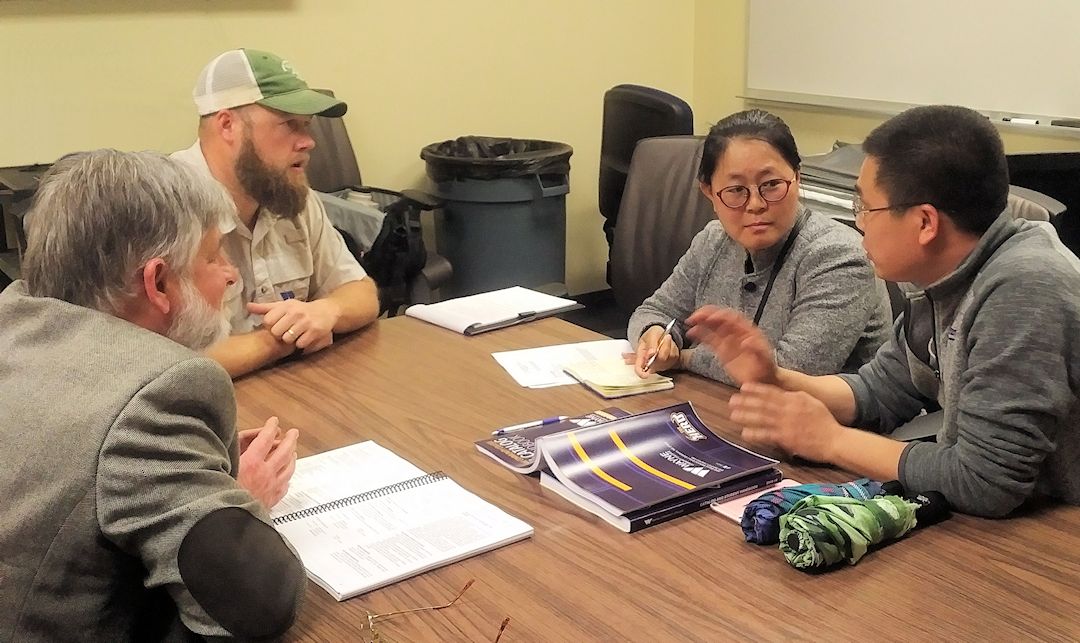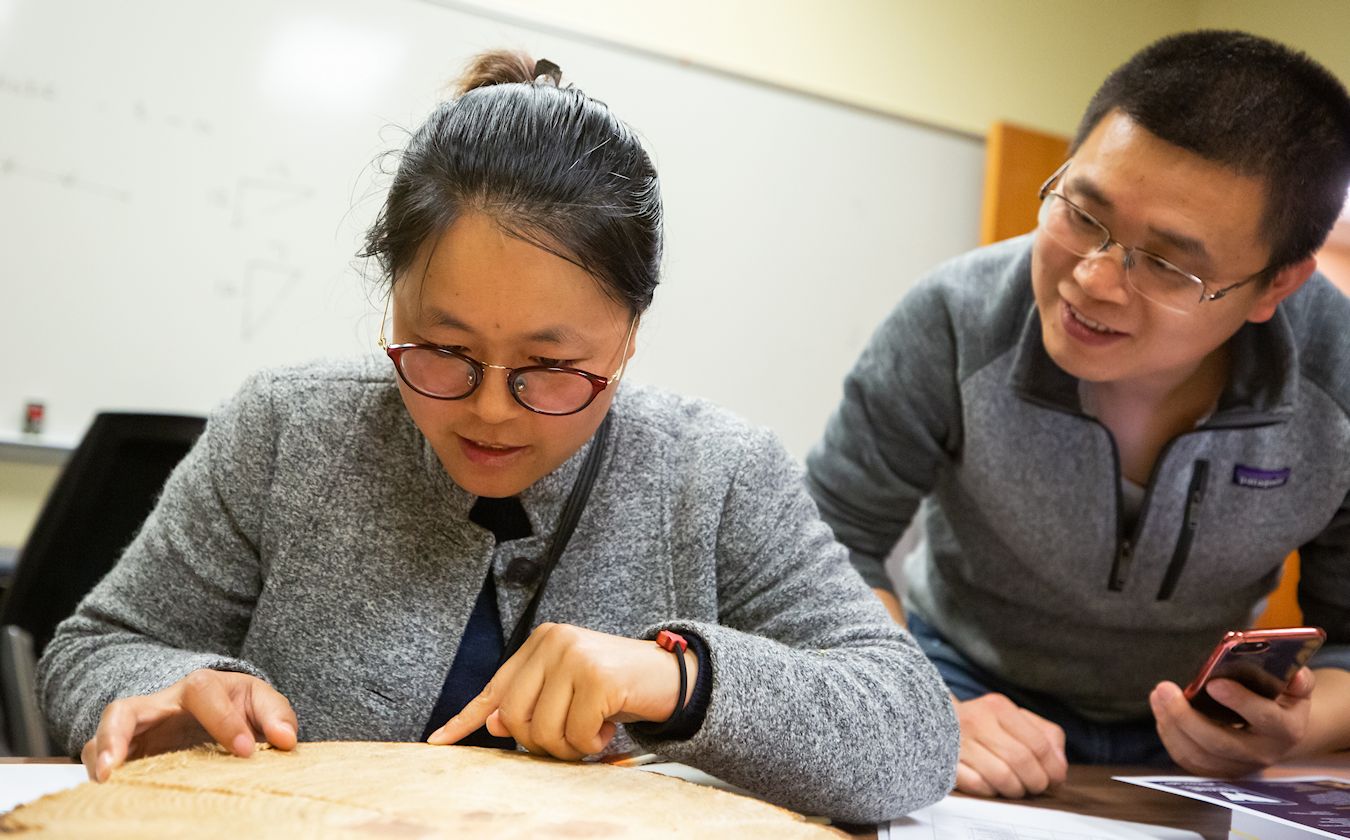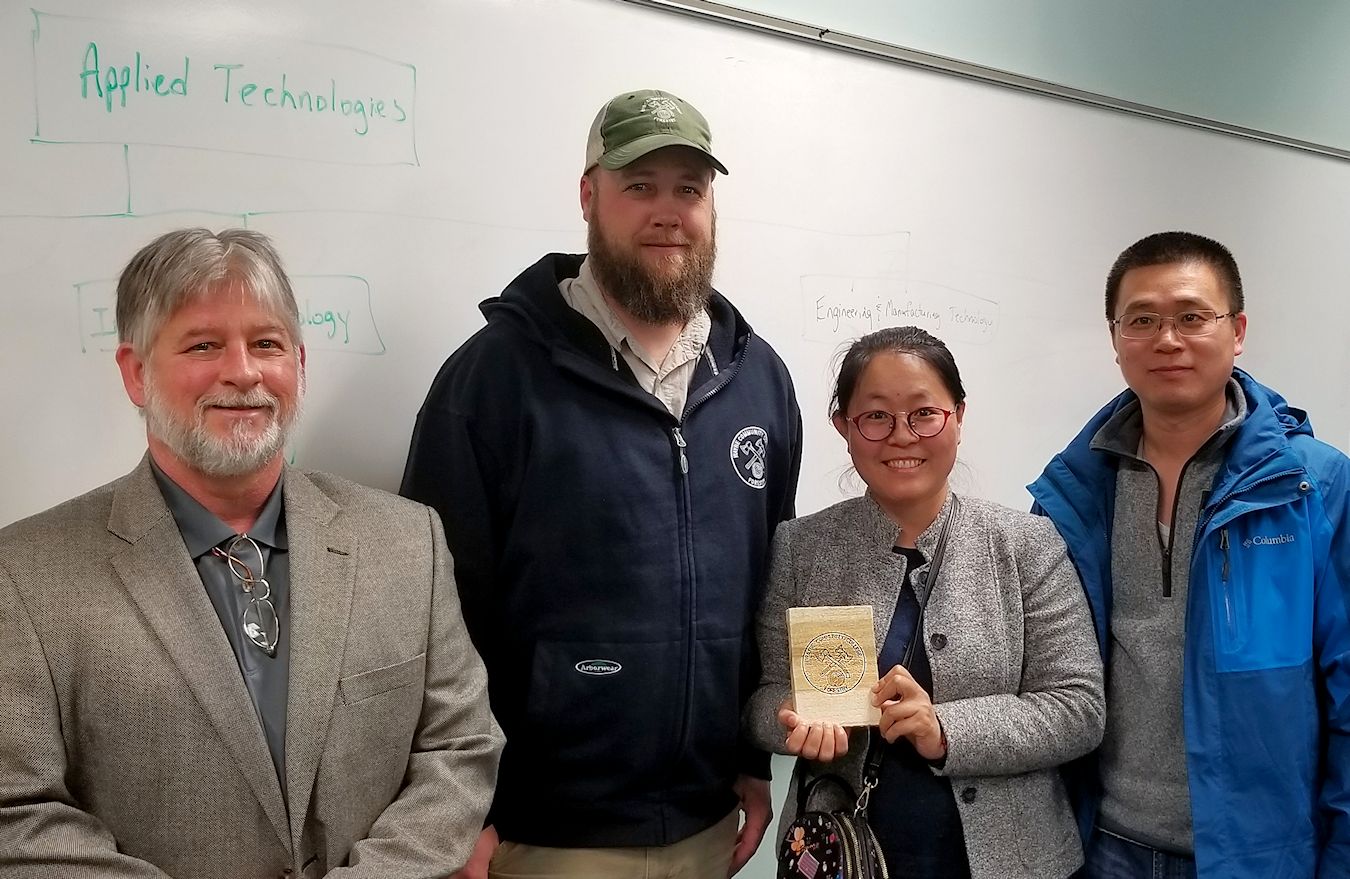An out-of-the-blue message may lead to a relationship between Wayne Community College and a Chinese institution.
In May 2018, Huang Shizhu, an assistant professor at Heilongjiang Vocation Institute of Ecological Engineering (HVIEE) in Harbin, People’s Republic of China, contacted WCC about becoming a visiting scholar. She said she wanted to “learn the ideas and models of American community universities.”
The college didn’t hear from her again for nine months. At that point, she was at the end of a six-month stay in the United States with her husband Xiaoxin Sun, who is a visiting scholar at Duke University. In China, he is an associate professor in the School of Forestry/Wetland Research Center in Northeast China in China’s Northeast Forestry University.
Shizhu had visited other North Carolina community colleges but particularly wanted to learn about WCC’s forest management technology program. Forestry Instructor Jim Moeller agreed to the meeting and Dr. Ernie White, the Applied Technologies Division dean, joined him.

Shizhu described HVIEE as a “comprehensive public school engaging in vocational education of forestry, garden, landscaping, horticulture, agribusiness, geomatics and golf course management.”
She is the director of the Forest Technology program and oversees forestry and biotechnology instruction and research.
When Shizhu came to the campus, with her husband as her occasional translator, she brought a prepared list of questions that any teacher from another college might have, such as about organization of the division, program length, credits, content of courses, fees, lab locations, why WCC has summer classes (her college closes for two months in the summer), and where students go when they graduate.
“I hope to learn something from you that I can take back,” Shizhu said as she came in.

Moeller and White learned as much from her as she did from them – things like 40 percent of the land in her province is covered in forest and the trees grow very slowly there. That, she said, is why “it is very important to have forest management, to learn technology.”
While she admired WCC’s website, Moeller and White were impressed with her college’s 100 acres of timber land on one of the college’s campuses, “divided into a variety of forest types to provide students with a broad spectrum of learning experiences.”
There are similarities between the schools. HVIEE’s predecessor institution was founded around the same time as WCC. Students can earn an associate degree at both institutions and many choose to transfer to continue their educations while others opt for employment. They offer around the same number of programs and, besides forestry, both have turfgrass, accounting, business administration, operation management, early childhood education, and aviation technology.
HVIEE has around 2,000 more college-credit students than WCC and close to double the faculty but WCC’s campus, at around 156 acres with 11 instructional buildings, not counting the two buildings at the Wayne Executive Jetport, is nearly three times larger than the Chinese campus (excluding the forest).
Moeller and White shared details of WCC’s associate in applied science degree in Forest Management Technology and two five-course certificates: Natural Resource and Wildlife. They also talked about WCC’s articulation agreement with North Carolina State University’s Forestry and Environmental Resources program.
WCC is one of just four community colleges in North Carolina that offer a forestry degree. WCC’s program is the oldest of its type in the state and one of the oldest in the eastern United States.
Shizhu left with pages of notes and an abundance of WCC materials, from a catalog to class syllabi, and one special memento, a piece of yellow poplar with the WCC Forestry Program logo burned onto it.

“It was a great tour for me,” Huang said in a thank-you message. “I hope to keep communicating with you and your colleagues. We hope that you will visit our college and exchange ideas with us in the future. We are looking forward to our next meeting.”
“She really wants to set up a relationship between her college and WCC,” Moeller said. “She sent Dr. White some information about her president in hopes that we may invite him for a visit.”
“I’ll admit I was skeptical of the whole thing at first but after meeting her and talking, it was a unique experience and I plan to stay in touch,” said Moeller.
Wayne Community College is a public, learning-centered institution with an open-door admission policy located in Goldsboro, N.C. As it works to develop a highly skilled and competitive workforce, the college serves 12,000 individuals annually as well as businesses, industry, and community organizations with high quality, affordable, accessible learning opportunities, including more than 70 college credit programs. WCC’s mission is to meet the educational, training, and cultural needs of the communities it serves.

